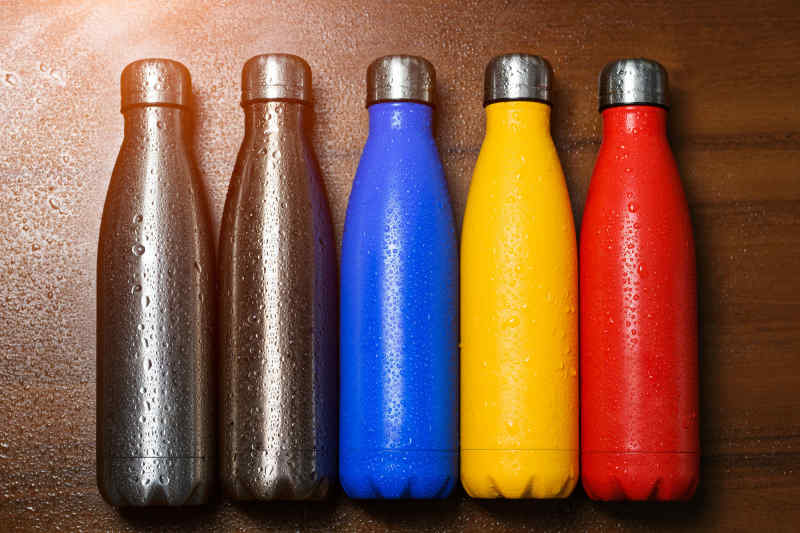By Soren Rivero
If you’re looking for some ways to reduce your impact on the environment while traveling, here are 10 tips for sustainable travel.
Consider Other Modes of Transportation
Compared to other transportation methods, such as driving a car or taking a boat, flying produces the most carbon emissions
When it comes to traveling cross country, there really isn’t a way to avoid planes, that is unless you want to drive through multiple borders or take a cruise. What you can try, however, is to prioritize non-stop flights over connecting flights as this reduces carbon emissions from taking multiple aircrafts.
When you arrive, you can choose other forms of transportation. If you want to travel around the country to explore, then it’s best to stick with a car or a bus instead of planes. You can also try to walk or bike wherever you can!
Choose an Airline That Uses Renewable Biofuels
Unfortunately, planes are sometimes unavoidable. But don’t fret — there are still ways you can reduce your carbon footprint!
One of those ways is to select an airline that uses renewable biofuel. Planes that use renewable biofuel get their energy from renewable sources such as wood chips, oils from plants, and biodegradable waste. By choosing an airline that uses renewable energy, you can reduce your carbon footprint by about 40%. It's a new practice so not many airlines are doing it yet. If you're looking for sustainable airline options in the US, consider trying American Airlines.
Hotel Tips and Tricks
Most hotels arund the world will have disposable toiletries and items for you to use at your convenience. These are single-use items such as sample size lotions and shampoo. While they might smell nice and are free (who doesn’t love free stuff?) — single-use items are just another form of wasteful plastic. To avoid adding more waste to the lands of Colombia, bring your own toiletries and items such as toothbrushes and soap bars.
You can also bring refillable bottles instead of using plastic water bottles, use minimal lighting, use the "Do Not Disturb" sign and decline housekeeping unneeded, and use a big waste bag rather than multiple single-use bags.
Take Your Own Reusable Items
Our world has become extremely polluted, making it vital to avoid contributing to further environmetal destruction whenever you travel. One of the easiest ways you can do this is to avoid single-use plastics and other items.
Instead of single-use plastic, opt for reusable water bottles, plates, cutlery, and bags. If you have to use single-use plastic, remember to follow proper recycling methods.
Look For Eco-Friendly Tours
Tours are a great way to learn about the place you're visiting!
Try to ask the hotel staff for recommendations on eco-friendly tours that pay respect to place you're visiting. By choosing eco-friendly tours, you’ll not only protect the environment but support local communities, too!
Be Respectful
Sustainable travel is not just about the environment and the wildlife. You have to pay respect to the local or indigenous people of land that you're visiting. Time and time again, tourism is given a bad reputation because of a few select tourists who disrespect the place they are visiting. While you can't control those folk, you can definitely show the world that you are the paradigm of a sustainable and respectful tourist. Show locals the same respect and kindness you would to anyone else. Learn their language, customs, habits, and pay close attention to not offend anyone.
Shop Local
If you're still curious on how to travel ethically, you can start by supporting small and local businesses! Many families rely solely on the income from their sales to support themselves, tourism is a great way to help them out. Buy local, stay local!
Advice on Sunscreen
Did you know that most name-brand and over-the-counter sunscreen products contain chemicals that damage coral reefs? Some of the most common ones are CVS and Coppertone brand sunscreens.
There are, however, plenty of sunscreen brands that don’t contain oxybenzone and octinoxate (two chemicals known for coral bleaching), such as Alba Botanica and JĀSÖN. Try to use these and other eco-friendly products!
Visit Reserves, Sanctuaries, and Protected Areas
In recent years, the World Wildlife Fund estimated that about 10,000 species go extinct every year. While it isn't a massive contributor compared to agriculture and urbanization, travel is indirectly linked to wildlife losing their habitats. Zoos and other unethical tourist practices are harmful to animals as they remove them from their natural habitat and are exposed to dangerous conditions.
Protected areas allow tourists to safely see animals in their natural habitats. The fees collected are used for preservation. Supporting protected areas (if done correctly), helps preserve the world's biolife!













